Improve reading comprehension Reading Comprehension Worksheets for Ages 4-7
6 filtered results
-
From - To
Discover engaging and expertly designed reading comprehension worksheets crafted for children ages 4-7 at Kids Academy. Our collection is strategically structured to bolster essential reading and comprehension skills. Each worksheet simplifies complex texts with vibrant illustrations, interactive activities, and vocabulary-building exercises, making learning fun and effective. Ideal for early learners, these resources support word recognition, contextual understanding, and critical thinking. Perfect for both classroom and home practice, our worksheets are the ideal tool to improve your child's reading abilities and boost their confidence. Uncover a world of knowledge today with our optimized reading comprehension tools.
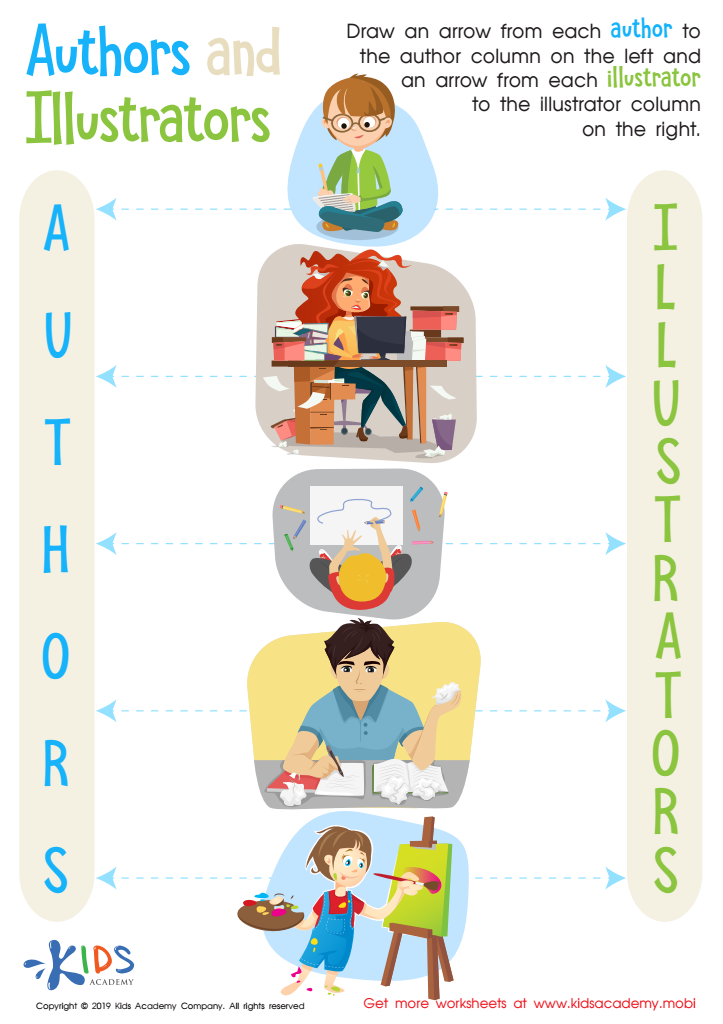

Authors and Illustrators Worksheet
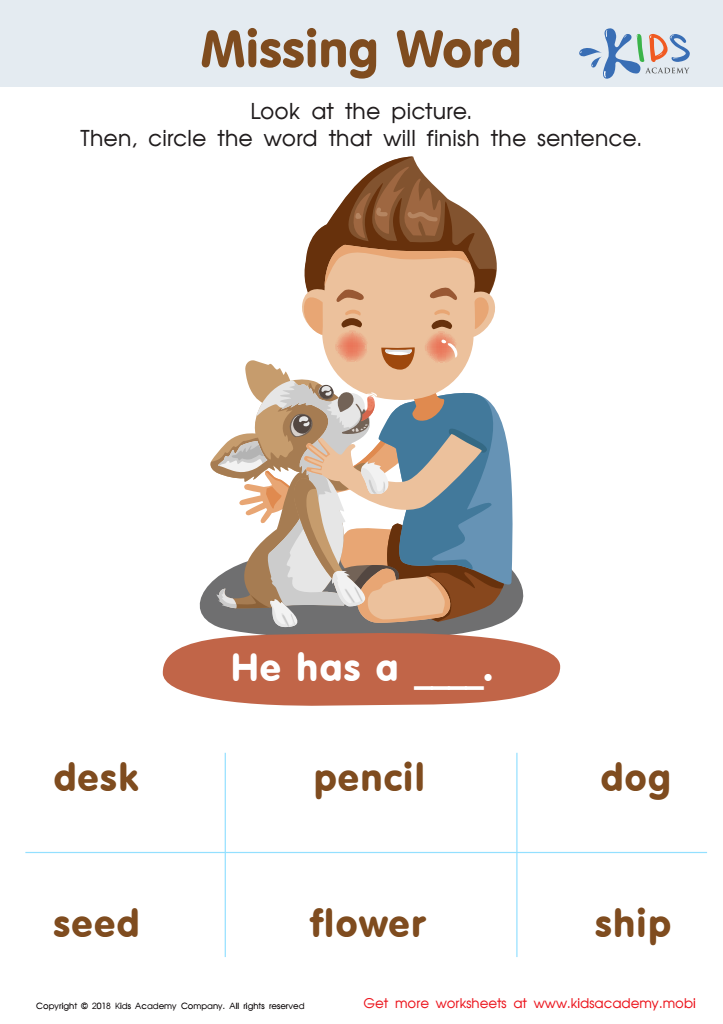

Missing Word Worksheet
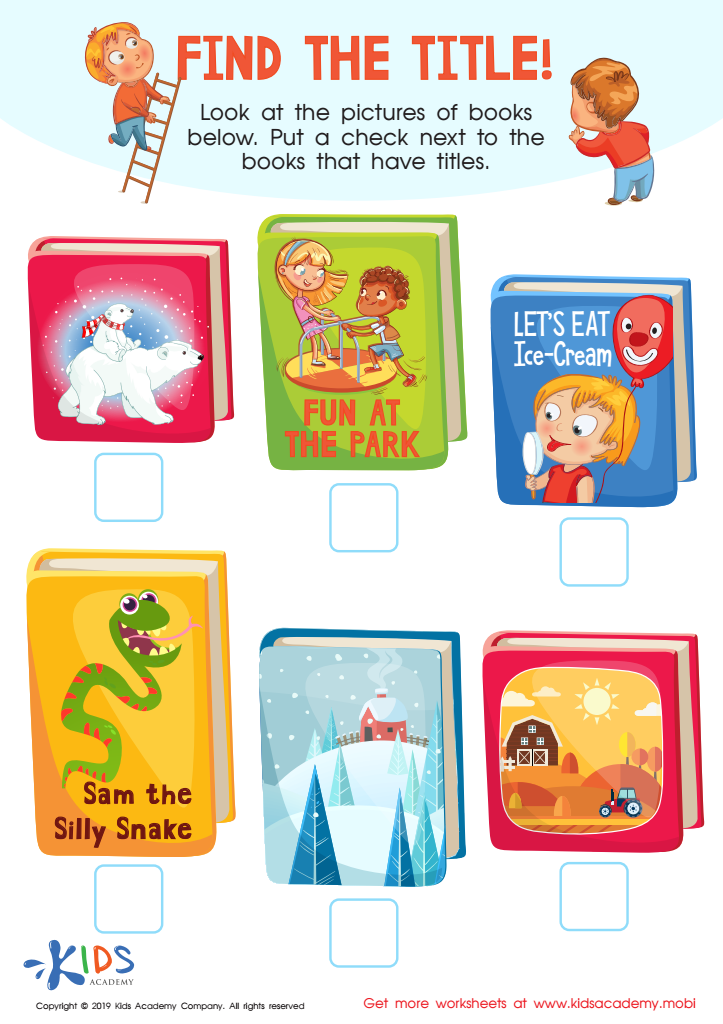

Find the Title Worksheet
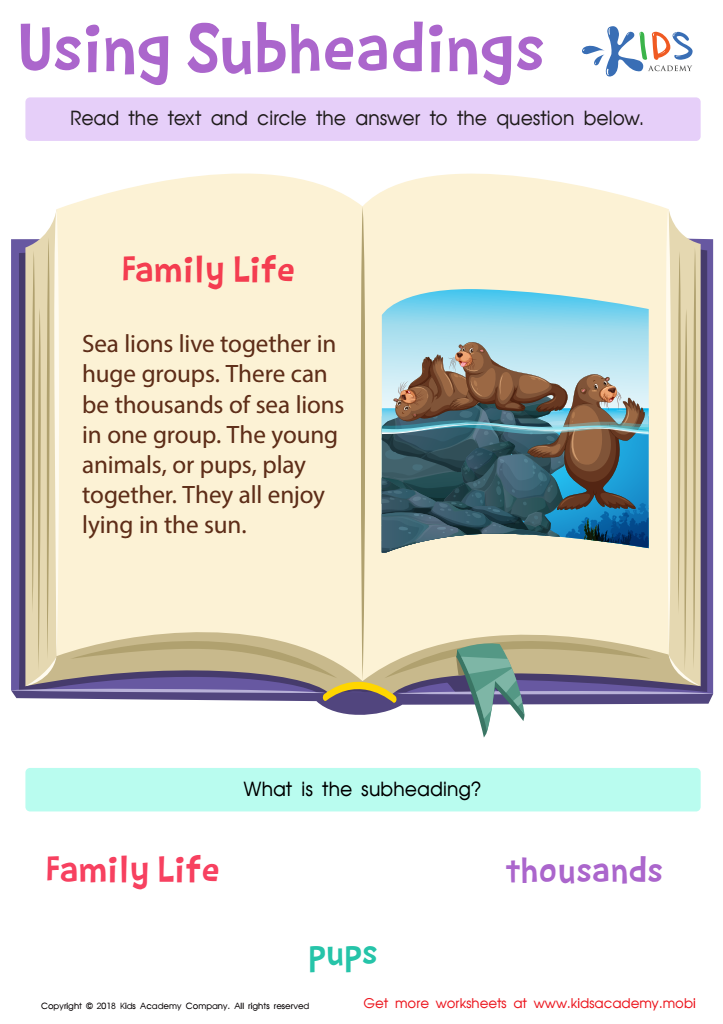

Using Subheadings Worksheet
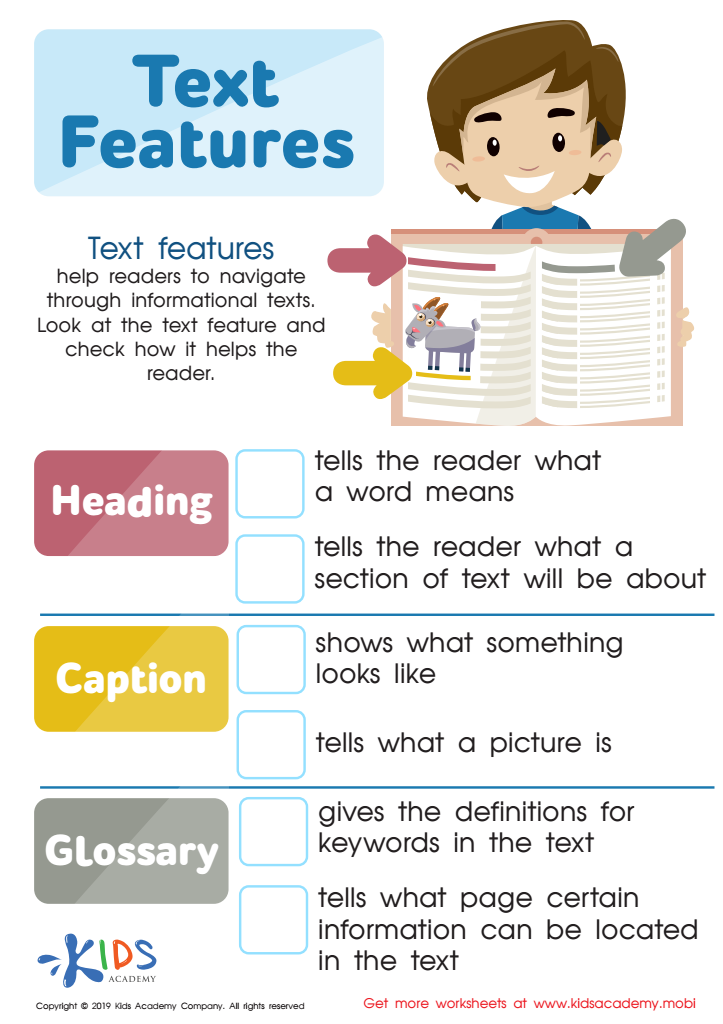

Text Features Worksheet
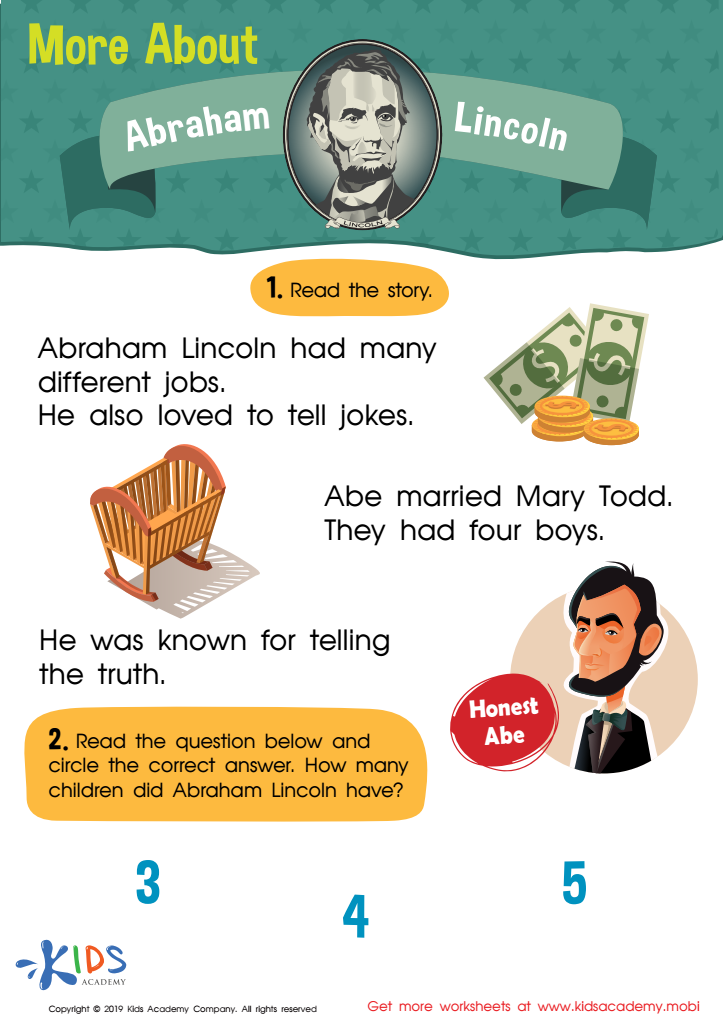

More About Abraham Lincoln Worksheet
Reading comprehension is fundamental to a child's overall academic success and lifelong learning, making it essential for parents and teachers to prioritize it for children aged 4-7. At this developmental stage, children are beginning to transition from recognizing letters and sounds to understanding sentences and short texts. Improved reading comprehension helps children grasp the meaning of what they read, fostering a love for books and learning. It also enhances vocabulary, critical thinking, and the ability to follow instructions.
Moreover, effective reading comprehension at an early age builds a solid foundation for more complex literacy skills in later grades. When children understand and enjoy reading, they are more likely to be self-motivated learners, exploring new topics and ideas with enthusiasm. This initial success boosts their confidence and sets a positive cycle of educational achievements.
Parents and teachers play pivotal roles in developing these skills. Engaging in reading activities, asking questions about stories, and discussing books can significantly improve a child's comprehension abilities. By nurturing these skills early on, adults can help children develop important cognitive and emotional skills, ultimately equipping them with the tools needed for future academic and personal success. Therefore, attention to reading comprehension during these formative years is crucial.

 Assign to My Students
Assign to My Students
















